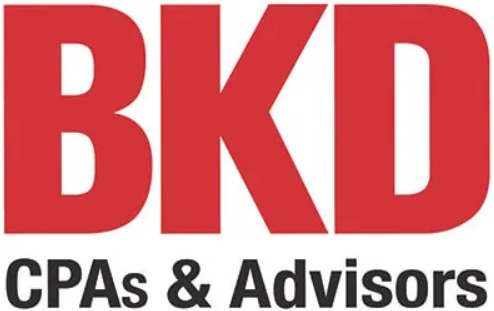
Written by: Andy Williams, CPA
BKD Mississippi Office Managing Partner
[email protected]
Lead with Proactive Communication
Internal Communication Priorities: During a crisis, effective communication starts with the tone at the top. Organization leaders should develop a clearly defined internal communication plan. This includes providing regular updates from company leadership to employees and establishing an internal task force to monitor and respond to new developments.
External Communication Priorities:
- Develop a core customer communication and credit plan to reduce collection risk
- Proactively communicate with outside organizations
- Formulate a supplier plan to protect the supply chain
Cash Flow Planning
Economic activity and related cash flow have taken a hit since that onset of the COVID-19 pandemic. Without positive cash flow, the cash reserves of businesses can be depleted quickly. Below are five best practices to help you mitigate these effects:
- Communicate
- Consider your options
- Review subscriptions
- Be Innovative
- Stay Informed
Understanding Your Relief Options
Economic Injury Disaster Loan Things to Consider:
- Is your business an eligible small business in your industry?
- There’s no application fee or prepayment penalty associated with an EIDL.
- Current guidance from the SBA indicates applications will be processed, approved and funded within three to four weeks. Short-term conventional financing obtained during this interim period may be eligible to be refinanced with the EIDL proceeds.
- If approved, the borrower can request additional funding if the initial loan amount isn’t enough to cover the actual economic injury.
- Recent guidance indicates the SBA has suspended the requirement of taking real estate as collateral.
- Other collateral, if available, may still be required to be pledged.
Business Interruption Claim
Business interruption coverage is intended to recover lost business income when an event occurs. Consider these steps:
- Get to know your policy specifics/definitions – Check to see if COVID-19 has in some way triggered a policy loss
- Identify where you’re incurring losses – It may be your entire business or particular segments
- Notify your insurance carrier
- Be diligent in tracking your expenses incurred due to the event:
- Create new general ledger accounts
- Retain supporting documentation
- Identify costs incurred for alternative arrangements for employees
- Identify costs incurred in order to save means of production and delivery
- Mitigate losses – Attempt to operate, if possible; consider alternative ways of doing business to help limit your losses
FEMA Public Assistance
FEMA funding is designed to reimburse qualified organizations for much of their emergency response cost—but only if their application for funding is properly structured and timely presented. The eligible emergency protective measures under Category B costs related to COVID-19 include:
- Management, control and reduction of immediate threats to public health and safety
- Triage and medically necessary tests, diagnosis and prescription costs
- Emergency medical treatment and transport
- Use or lease of necessary specialized medical equipment
- Purchase of personal protective equipment, durable medical equipment and consumable medical supplies
- Medical waste disposal related to eligible emergency care
- Evacuations and sheltering
- Force account labor
Tax Provisions
While the Families First Coronavirus Response Act (FFCRA) and Coronavirus Aid, Relief and Economic Security Act (CARES Act) include an overwhelming amount of guidance, it’s important to understand key provisions that could be most significant to individual and business taxpayers. We’ve included a flowchart below to help steer you in the right direction. We also encourage you to visit our COVID-19 Resource Center or speak to a BKD tax advisor for more tools and resources to help guide you on the best path forward in your current situation.
For a detailed summary of tax relief options, including payroll tax credit and deferral options, check out this helpful chart developed by BKD’s trusted tax advisors.
Cybersecurity Considerations
Although economic activity has slowed down dramatically, activity from cybercriminals remains an ever-present and viable threat. Here are five things you should consider to help protect your business from bad actors who may be looking for vulnerabilities in your cyber defense.
- Beware of suspicious emails
- Verify emails
- Be aware of phone call scams
- Adjust your social media privacy settings
- Stay in contact with those you know
Visit bkdcyber.com for additional tips and guidance for managing cyber risk.
Remote Work Best Practices
While there are many best practice recommendations for transitioning to a remote work environment, we’ve included some key considerations below that may be helpful when updating your business continuity plan now and in anticipation of future events.
- Perform a stress test to identify bottlenecks or limitations within these channels
- A usage policy should be approved by management and reviewed periodically to help ensure that company needs are being met.
- Phones and computers should have screen lock policies and be protected by a PIN or password
- If you have employees working in a remote public location, you should consider implementing a VPN
- Always identify who’s deemed essential and what’s required of those individuals before a crisis occurs.
For more detailed guidance click here to download our full guide.
December 8th, 2021





